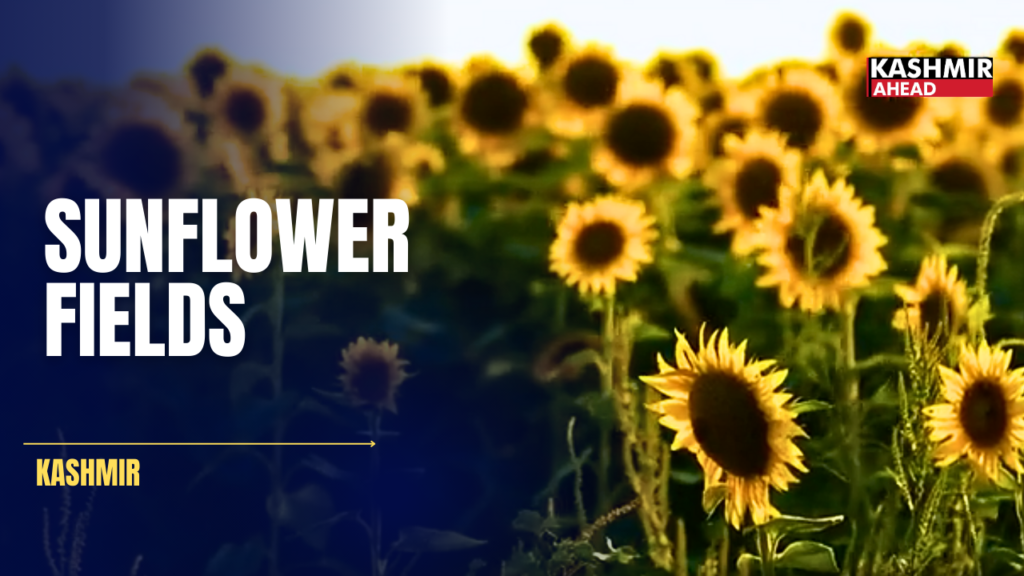Pulwama, a picturesque district in Jammu and Kashmir, is celebrated for its stunning natural landscapes. Among its many natural wonders, the sunflower fields stand out as a vibrant testament to the region’s agricultural richness and scenic beauty. These fields, with their vast stretches of golden blooms, offer a visual feast and a poignant reminder of nature’s artistry. During the blooming season, Pulwama transforms into a radiant canvas of yellow, as its sunflower fields come alive. The sight of countless sunflowers swaying gently in the breeze, their bright petals glistening under the sun, creates a breathtaking panorama. The fields extend as far as the eye can see, with rows of sunflowers facing the sky in unison, forming a sea of golden hues. This dazzling display is not only a feast for the eyes but also a serene escape from the hustle and bustle of urban life. The sunflower fields of Pulwama are more than just a visual delight; they play a vital role in the local culture and economy. Traditionally, the cultivation of sunflowers in Pulwama reflects the region’s agricultural diversity. The sunflower seeds, once harvested, are used to produce sunflower oil, which is a healthier alternative to refined oils often purchased from the market. Refined oils, which have been a staple in many households, are known to be less healthy and linked to various diseases. By cultivating their own sunflowers and producing oil locally, residents can avoid the health risks associated with refined oils and benefit from a more nutritious option. This agricultural practice not only supports the livelihoods of local farmers but also contributes to the region’s economic stability. Furthermore, sunflowers play a crucial role in maintaining ecological balance by attracting pollinators like bees and butterflies, which are essential for the health of the surrounding flora.
The sunflower fields of Pulwama: A golden legacy of agriculture and health
Keep Reading
Add A Comment
Services
- About
- Contact
- Video
- Newsletters
- Sponsored News
Subscribe to Updates
Get the latest creative news from FooBar about art, design and business.
© 2025 Kashmirahead. Designed by Creative Milestone..




